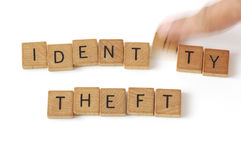Preventing Identity Theft

Preventing identity theft is very important and critical. Identity fraud costs companies billions of US dollars and thousands of dollars to consumers per incident. If that’s not enough, how about the fact that many consumers must take many hours of time off work to resolve their identity theft issues with the financial institutions and credit bureaus to repair their credit score, claim their innocence, and get their money back. It’s a lot easier to prevent identity theft than to detect and resolve identity theft. Although, detecting identity theft timely is also important or suggesting that you can fully prevent identity theft is misleading, there are daily steps that can reduce the risks of identity theft.
As we think about preventing identity theft and attempt to preserve our privacy and prevent identity fraud from happening, we must utilize strategies which are different from fraud detection or fraud resolution.
This website focuses a lot on identity theft prevention to educate and increase the public awareness about identity theft. Identity theft prevention is very important and somewhat easy to the extent that we are in control of our personal information. There are so many steps that if people take and follow the instructions listed on this website, they can reduce the occurrence of identity theft. Of course, businesses and others with whom we share our information must do their part, but the point is that collectively, we can prevent identity theft by a large margin.
As you may already know, most of us are identity obese and continue to accumulate and share more personal information than ever before, placing ourselves and our family at greater risks of identity theft. For example, if you visit a doctor's office for the first time, you have to fill out a patient profile application which is sometimes 8 pages long asking for personal and family information including medical history.
You've probably seen some of these patient applications; by the time you’re done with answering all the questions, you can actually publish it as your own life memoire. As we visit more doctors and share our personal information many times over, we have to also wonder how the doctor keeps up with protecting our personal information imprinted on an 8 page paper book. Many doctors are not security savvy and don't fully understand or even care about the risks of identity theft to their patients other than to comply with HIPAA.
Therefore, the combination of careless sharing of personal information by consumers (although sometimes we are forced to unnecessarily share information) as well as the insufficient security practice on the part of businesses to protect our identity leads to higher risks of identity theft.
As we conclude and understand why preventing identity theft is critical, we must alter our daily habits and educate ourselves about the risks of identity theft for maximum identity protection. And as we understand the risks, we can then take the steps to reduce the risks. Such small daily steps might include fewer credit cards, fewer trips to the ATMs, fewer online accounts, less refinancing, less frequent and unnecessary doctor changes, thinner wallets, and cash purchases among other things.
Read other identity theft prevention articles for more articles.








